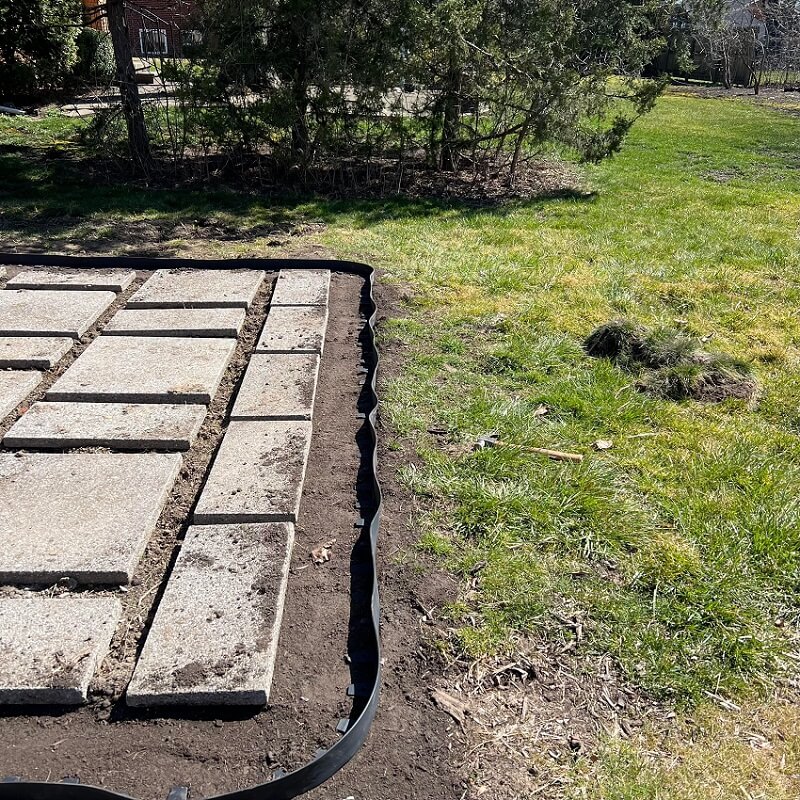A homeowner installing a patio was advised to avoid a plastic no-dig edging product because of its ineffectiveness.
In the r/landscaping subreddit, many professionals warned against using the barrier, which they said was difficult to work with and had produced subpar results.
"Any advice? No-dig edging is warping like crazy," the poster wrote.


"That stuff should be outlawed," one commenter said. "It's a horrible product."
"Yuck," another wrote. "Return what you can - that stuff sucks. For patio or walkway edging, use steel, concrete, stone, or timbers."
Those products may cost more, but it would be worth it. The last two are natural as well. That is an important factor given the overproduction of plastic and the resulting mess of waste, which is contributing to the rapid rise in global temperatures and the increasing frequency and severity of extreme weather events.
Over 90% of plastic items are not recycled. The items, which are made with crude oil, natural gas, and coal, become trash in landfills. Some of them are incinerated, but a lot end up as litter, polluting our land, water, and even air.
Petroleum companies are responsible for this problem and must be forced to make a 180-degree turn. Though they knew plastic, just like oil and gas products, was bad for the environment — that it could "never be recycled at scale" — they deceived the public to rake in profits, the Center for Climate Integrity reported.
Government officials are already taking action against industry leaders to hold them accountable.
As individuals, we can reduce the demand for these toxic, damaging materials by refusing to purchase them. You can choose to buy yogurt in glass jars instead of yogurt in plastic containers, for example. The plastic you already have in your home can be reused or repurposed, including as self-watering planters for herbs.
"You got 2 years max with that," one Redditor wrote of the landscaping product. "I'd suggest not using that material (made the same mistake)."
Another user said: "Return it and get metal. I Got plastic and regret it everyday."
Join our free newsletter for easy tips to save more, waste less, and help yourself while helping the planet.









